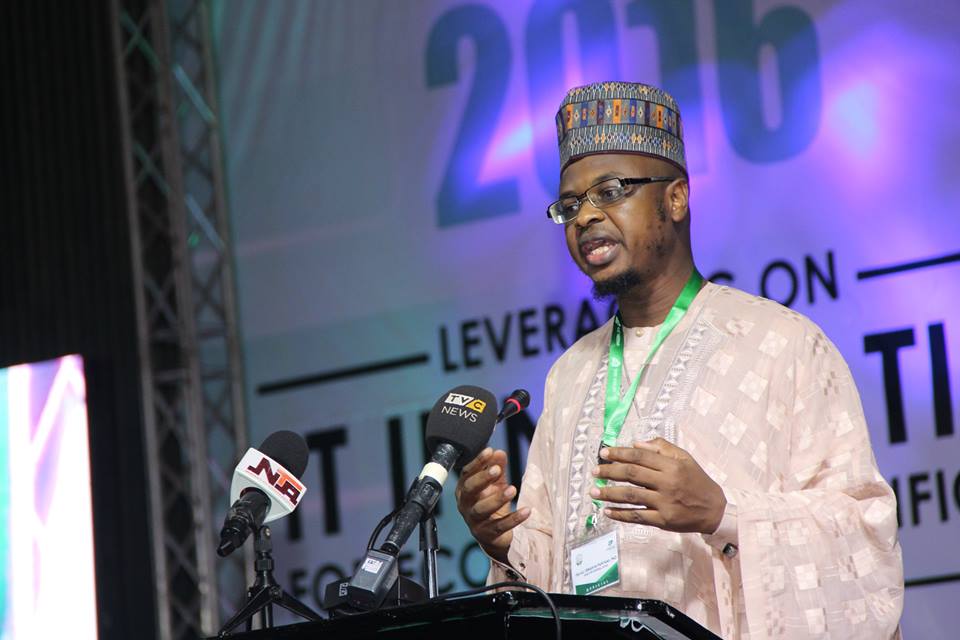Finance
NITDA saves over N10bn for FG in past one year, says DG


Proper regulation makes development easier to achieve. As such, the National Information Development Agency, NITDA, has renewed emphasis on regulation and developed standards and guidelines for different aspects of the ICT sector.
In line with the moves, the Agency has put the necessary machinery in place to ensure compliance as compliance with boost efforts towards saving costs and expanding digital inclusion agenda of the Government.
The efforts are yielding results as the Agency has saved over N10billion for the Federal Government in the past one year.
This was contained in a goodwill message by the Director General of NITDA, Dr. Isa Pantami, to the Nigeria Computer Society, NCS, 27th National Conference, taking place in Ibadan, Oyo State.
The DG said that as the clearing house for Information Technology Projects in Nigeria, Ministries, Departments and Agencies (MDAs) of the government now come to us for the clearance of their ICT projects.
The DG who was represented by the Director of IT Infrastructure Solutions (ITIS) Department of the Agency, Dr Agu Collins Agu, said that the efforts were to eliminate duplication, ensure there is value for money and that the projects are sustainable.
“All the MDAs have been provided with a copy of the template and the IT clearance process will help in building standardized IT infrastructures as well as efficient IT systems and services. It will reduce the cost of IT investments and will ensure commensurate value is derived from every IT investment. Eventually, these efforts will spur innovations and enhance MDAs responsiveness to their obligations.
“…Through this clearance process we have saved the government over N10 billion within the last year. The process has also enabled us to support the development of local content”, he said.
The DG regretted that Nigeria loses a significant amount of foreign exchange annually from the importation of ICT goods and services.
Sadly, a large proportion of this is spent on software imports. “We are working hard to reverse this trend and indigenous ICT businesses, including the many who are members of CPN, stand to benefit greatly from a local content policy that encourages the development of local ICT products and services”, Dr. Pantami said.
He reiterated that Local Content Development and Promotion was chosen as one of the pillars of NITDA’s Roadmap because they understand the importance of indigenous entrepreneurs to the growth of the sector.
“We already have Local Content Guidelines and are actively enforcing them. We have issued guidelines for government websites and are currently supervising the repatriation of all government regulated and generated data.
“The Federal Government issued Executive Orders #3 and #5 to support the development of local content in the country and we are supporting the Federal Government in the enforcement of these orders. On the one hand, we are creating a market for our local OEMs by ensuring that government institutions give a preference to local products in their procurement process” he told the gathering of IT Professionals at the conference.
On the other hand, Dr. Pantami said, NITDA has also increased the level of regulation of these OEMs to ensure that they meet global best practice standards and provide readily accessible after-sales support for their customers.
On cybersecurity, the DG said that efforts are in top gears to prevent espionage as a result of the ICT products and services that both private and public organisations utilize.
“We want to ensure that this does not happen in Nigeria and we intend to achieve this by strengthening our capacity to respond to cyber threats. A Cybersecurity department was created to focus on this sector. We have been proactive in securing the Nigerian Cyberspace and this ensured that the Wannacry Ransomware and similar global threats did not affect us in Nigeria. We are also currently embarking on a massive cybersecurity awareness programme across the country”, the goodwill message reads.
Also, the Agency has engagements with most of the MDAs as part of efforts to promote Government Digital Services which the DG said falls in line with the Conference theme: ‘Digital Inclusion: Opportunities, Challenges and Strategies’.
“This Conference is addressing a very important issue that affects the penetration of ICT in Nigeria, he said, emphasising the need for deliberate strategies to foster digital inclusion across the country.
Source: TechEconomy.ng









